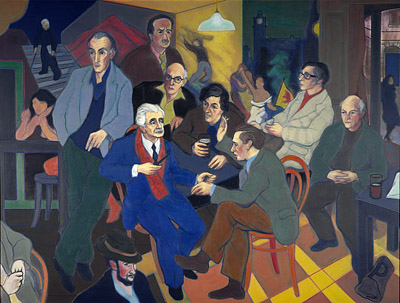An acceptance, a talk and workshop news
I haven’t had a poem accepted for a while so it was very nice to hear from Jeremy Page at The Frogmore Papers to say he’d like to take one for issue 82 in the autumn. Hurrah!
(I also had some other good news last week but more about that shortly.)
And now I’d like your thoughts please on a slightly sticky situation. I’m still rather on tenterhooks with Agenda, after a four month wait I thought I would email again to ask very gently if my poems were still being considered (it does say on the website to expect a 12-week wait, and subscribers -of which I am one- are allegedly given some priority in being dealt with, so I didn’t think it unreasonable to ask.) But would you believe it, apparently my (email) submission was never received, but editor Patricia McCarthy was apologetic and invited me to resubmit, which I did, asking for acknowledgement that they had been received. But I’ve heard nothing.
So here’s the issue: do I assume my emails aren’t getting through, and just submit the poems elsewhere? (Email is now the only way to submit to Agenda.) Or do I wait, and for how long? I don’t really want to put these poems away for another 4 months. But I don’t want to put myself in the editor’s bad books by having to tell her the poems have gone elsewhere, if she does want them. I also don’t want to pester her with emails saying ‘can you please tell me you’ve got them’ or whatever. It’s a good magazine and I’ve had work in there before, so I don’t want to give up lightly.
Lordy! The etiquette of submissions. And is it very common for poems to go astray? It seems to have happened to me an inordinate number of times.
Meanwhile on the workshop front I enjoyed hosting Colin Bell’s poetry evening in Pleasant Stores round the corner from me in Lewes, although only 2 people turned up. So with Sara the cafe owner that made four of us. It’s not a workshopping group, but people are invited to bring either their own poetry or someone else’s. I took along a selection of mags and books and read poems by Lewes poet Janet Sutherland which everyone liked, and a couple from Sam Rivere’s 81 Austeries, which I love but I think they were a bit too challenging for those present. (Read the review by Ruth Padel in the Guardian.)
Then yesterday I was at Brighton Library giving a short talk for writers about ‘Building your social web presence’. It was part of New Writing South‘s Publishing Industry Day which was well attended and I sat in on a couple of the other sessions, including one on Arts Council funding which was very interesting. I think I managed to sell a few tickets for the workshops I’m doing there next month and into May, so that’s good.
















